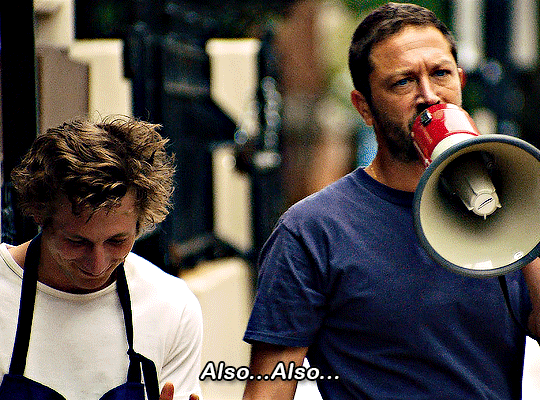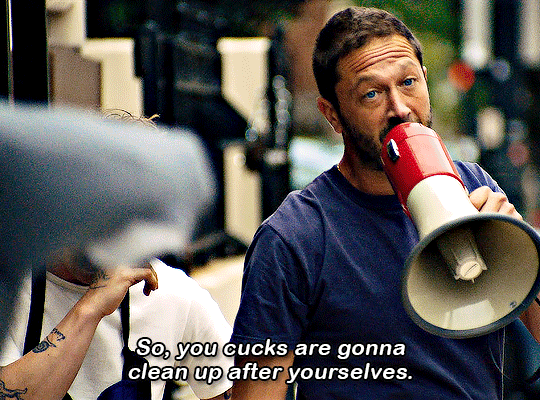i’d welcome you to hell but if you’re on tumblr you already know you’re there
Don't wanna be here? Send us removal request.
Text
don't worry, some of the best people i know also scroll for hours on end
1K notes
·
View notes
Text










+ bonus:

Richard "I wear suits now" Jerimovich
THE BEAR - 2.08 "Bolognese"
5K notes
·
View notes
Text
#nail polish so no#the thing before that is more scrub pants tho which wouldn’t be ideal but would work ok
938 notes
·
View notes
Text






THE BEAR | 1.01: SYSTEM Ebon Moss-Bachrach as Richie Jerimovich Jeremy Allen White as Carmy Berzatto
3K notes
·
View notes
Text
me [completely out of touch with my feelings, trying to describe an emotion]: I feel, um, glittery? buzzy. like peeling my skin off
86K notes
·
View notes
Text

This is one of my favorite pieces I’ve done because it is so nostalgic for me! I used to make AG stop motions and draw AG dolls all the time as a kid, they were such a big part of my childhood and I made some of my favorite memories with them! ♥️
Now available as 5x7 and 11x14 prints on my Etsy! ♥️ kaitlynillustrations.etsy.com
8K notes
·
View notes
Text
a mildly irritating internet phenomenon is people who have a fairly thorough understanding of particular aspects of history but seemingly no grasp of historiography or the process through which that history has reached current understandings
like sometimes i see people criticising historical inaccuracies in fiction from 50+ years ago without acknowledging that they're completely in step with historiography at the time. (and i'm talking ideas about social and political structure, not small details of material culture, so things that often go through big shifts in interpretation.) that WAS the mainstream take at the time and it's what the author would have learned from research. just because we now recognise it as "wrong" doesn't mean that author didn't do research or care about the worldview of their characters. they were in fact trying to do that in the context of the information and interpretations available in their time.
a work of historical fiction from the 1960s tells you about two histories: the one it's set in, and the one it was written in. if you only focus on the first one and completely ignore the second, you are failing to understand the book and its context entirely
some of this is also that many people underestimate how recent a lot of historical discovery and historiographical argument is. they see an "incorrect" idea from the 70s and assume it would have been viewed that way in the 70s when in fact major academic pushback was in the 80s on (or whatever)
like, taking my interest areas of medieval celtic studies... this field is YOUNG. a lot of the current historical and literary consensus developed not only within living memory but in the working life of scholars who are still alive/working. some of the biggest arguments and dramas involved colleagues of people i now personally know. a lot of it went down *just* before i was born, but that doesn't make it distant memory at all. everyone writing in the 80s was writing before that happened
all of this is part of why i hold historical fiction from 50 years ago to wildly different standards than historical fiction published today (another element is the significantly greater challenges to accessing research materials from outside academia pre-internet)
#thinking about the post that’s like why didn’t grrm consult these easily accessible books about mongolian culture before writing agot#and all but one of the books listed was published like 15 years plus after agot was#doesn’t mean that grrm/asoiaf shouldn’t be criticized for inaccuracies but like#can we at least try to remember the first book was written in the 90s when saying such and such source from 2015 is available to reference
368 notes
·
View notes






















